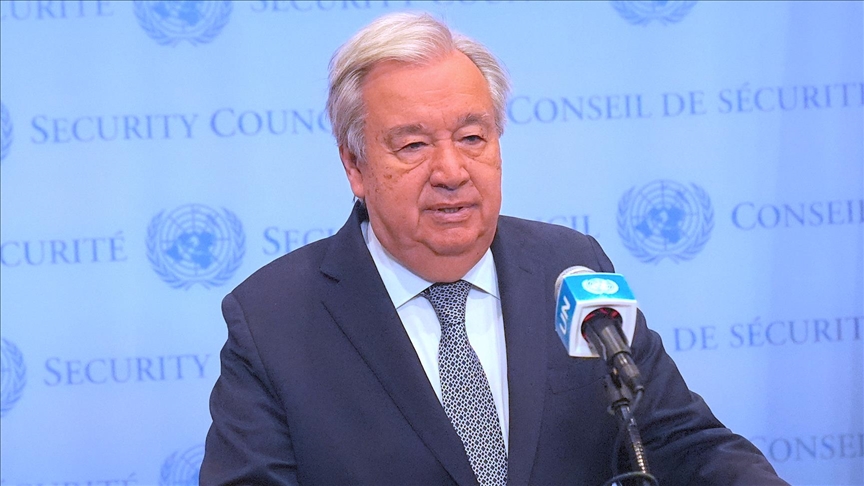UN chief marks 20th anniversary of Responsibility to Protect, calls for action amid global turbulence
'Two decades on, the Responsibility to Protect remains both an urgent necessity, a moral imperative and an unfulfilled promise,' Antonio Guterres says
 UN Secretary General Antonio Guterres
UN Secretary General Antonio Guterres
WASHINGTON
UN Secretary General Antonio Guterres said Wednesday that the global community is falling short of its pledge to protect populations from mass atrocity crimes, and noted the importance of the Responsibility to Protect commitment.
"Today, we mark the 20th anniversary of the Responsibility to Protect at a time of profound global turbulence," Guterres told the General Assembly.
Guterres said 20 years ago, leaders gathered at the 2005 World Summit and committed to protect populations from genocide, war crimes, ethnic cleansing and crimes against humanity.
Underlining that the world is witnessing "the highest number" of armed conflicts since the end of World War II, Guterres said the strifes are marked by rising identity-based violence, widespread violations of international humanitarian law and human rights law, and deepening impunity.
"Conflicts are becoming more protracted, more complex, and interconnected.
"Emerging threats such as the weaponization of new technologies and the proliferation of advanced weaponry require a constant adaptation of our efforts to prevent the commission of atrocity crimes and to protect populations," he added.
Stressing that the civilians are paying "the highest price," Guterres added the Responsibility to Protect is "more than a principle – it is a moral imperative, rooted in our shared humanity and the UN Charter."
He shared the 17th report of the Secretary-General on the Responsibility to Protect, which shows that early diplomacy, early warning and institutional innovation to prevent and respond to atrocity crimes can be effective.
The report underscores the need to mainstream atrocity prevention across the UN system -- from humanitarian action to peacekeeping to human rights, he added.
"No society is immune from the risk of atrocity crimes," he said.
"Two decades on, the Responsibility to Protect remains both an urgent necessity, a moral imperative and an unfulfilled promise.
"Let us keep the promise, deepen our commitment, strengthen our cooperation, and ensure that atrocity prevention and protecting populations becomes a permanent and universal practice," he added.








